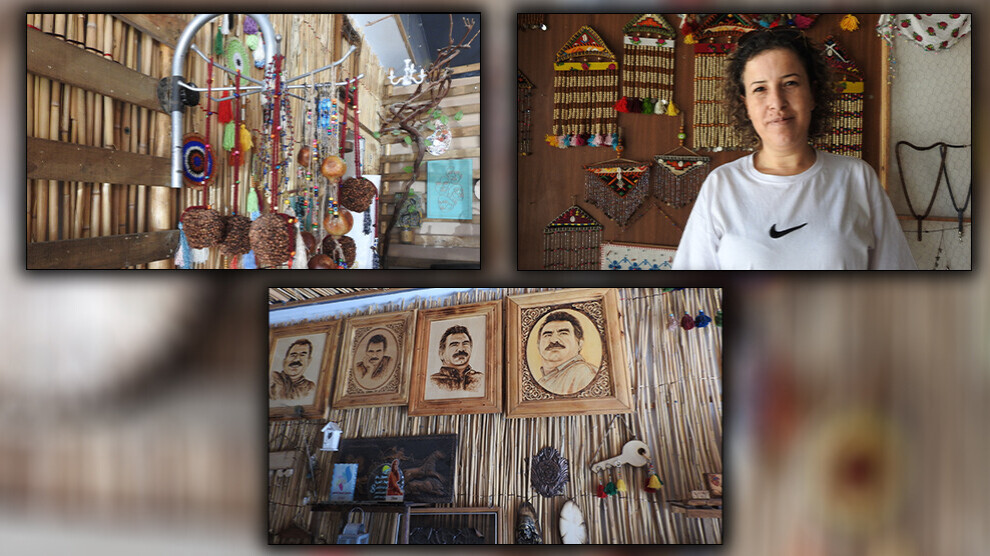Woman in Qamishlo makes handicrafts to preserve Kurdish culture
Cîhan Ebdulxefûr, a resident of the city of Qamishlo, makes Kurdish women's accessories to preserve Kurdish culture and earn a living.

ZEYNEB ÎSA
Qamishlo- Women fighting against assimilation policies have been passing down their society’s cultural values to next generations. Cîhan Ebdulxefûr, a resident of the city of Qamishlo, is one of them. She makes Kurdish women’s accessories and sells them in her store called “Shahmaran” to preserve Kurdish culture.
She displayed her products first at a festival
Cîhan Ebdulxefûr has been interested in handicrafts since she was 10. “When I started the school, there were art activities and thanks to these activities, I have improved myself in making handicrafts. After graduating from high school, I studied art at Damascus University. After my graduation, I started working as an art teacher at Xabur Culture and Art Center, teaching children how to make handicrafts. My dream was to open a store to make handicrafts and sell them. I have realized my dream and participated in many festivals. One of these festivals was a women’s festival. I displayed my products first at that festival.”
Cîhan Ebdulxefûr makes old Kurdish women's accessories such as bracelets, earrings, anklets, and nose rings. “The accessories used by our grandmothers attracted people’s attention. I also use Shahmaran design in my products. Since people loved my store, I decided to name it after Shahmaran,” she told us. Speaking about the challenges faced by her, she said, “I face difficulties in finding materials. Even if I find some, they are very expensive.”
‘I want to open branches’
There are two sections at Cîhan Ebdulxefûr’s store. “There are clothes in the first section and accessories in the second. I work with other women. Some of them want to work at home and we provide the necessary equipment to them. Now, I want to open branches of the Shahmaran store in other cities and expand the business. My aim is to preserve Kurdish culture and pass it down to the next generations.”
